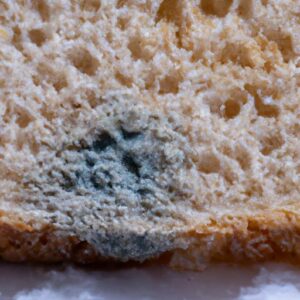Introduction
Have you ever wondered if your cooking oil can freeze? Picture this: you’re in the midst of preparing a delicious meal, only to find that your oil has solidified into a block of icy disappointment. To avoid this culinary conundrum, it’s crucial to understand whether cooking oil can freeze and how it affects our cooking endeavors.
The freezing point of a substance refers to the temperature at which it transitions from a liquid to a solid state. When it comes to cooking oil, its freezing point plays a vital role in determining its usability and quality. In this article, we’ll delve into the importance of knowing whether cooking oil can freeze and explore the relevance of the freezing point to our culinary adventures.
Cooking oil freezing can have various implications, both practical and theoretical. Understanding the freezing point allows us to anticipate how oil behaves under different conditions, ensuring our dishes turn out as intended. Moreover, it helps us determine the optimal storage conditions for our cooking oils, ensuring longevity and maintaining their quality.
So, let’s embark on this journey of unraveling the mysteries of cooking oil freezing. Get ready to discover the factors influencing the freezing point of cooking oil, the freezing points of common cooking oils, and whether freezing oil is safe or not. Together, we’ll explore the fascinating world of cooking oil and its frozen potential.
Stay tuned for the next section, where we’ll dive deeper into understanding the freezing points of cooking oils.
Understanding Freezing Points of Cooking Oils
Cooking oils have different freezing points, and understanding what influences these freezing points is essential in comprehending how they behave in various situations. Let’s explore the factors that determine the freezing point of cooking oil and the key elements that can affect this point.
A. What determines the freezing point of cooking oil?
The freezing point of cooking oil is primarily determined by its composition. Different types of oils have distinct chemical structures, leading to variations in their freezing points. The molecular arrangement and the presence of saturated and unsaturated fats in the oil play a significant role in determining its freezing point.
B. Factors affecting the freezing point of cooking oil
-
Type of oil:
The type of oil used affects its freezing point. For instance, olive oil and coconut oil have different freezing points due to their varying compositions. Olive oil, with a higher percentage of monounsaturated fats, has a lower freezing point compared to coconut oil, which consists mainly of saturated fats. -
Impurities and contaminants:
Impurities and contaminants present in cooking oil can affect its freezing point. These substances can alter the oil’s composition, leading to changes in its freezing characteristics. Pure and refined oils tend to have more predictable freezing points compared to oils with impurities. -
Storage conditions:
The way cooking oil is stored can also impact its freezing point. Exposure to extreme temperatures, fluctuations in temperature, or improper storage conditions can influence the oil’s freezing characteristics. It’s crucial to store cooking oil in a cool, dry place away from direct sunlight and heat sources to maintain its quality.
Understanding these factors helps us comprehend why different cooking oils have varying freezing points. In the next section, we will explore the freezing points of common cooking oils, shedding light on how they behave when subjected to freezing temperatures. So, let’s dive into the fascinating world of freezing points and cooking oils!
Common Cooking Oils and Their Freezing Points
When it comes to cooking oils, different types exhibit varying freezing points. Understanding the freezing points of common cooking oils is essential for maintaining their quality and ensuring their usability in our culinary adventures. Let’s explore the freezing points of some popular cooking oils: olive oil, canola oil, and coconut oil.
A. Olive oil
Olive oil, renowned for its heart-healthy properties, has a relatively low freezing point. The freezing point of olive oil typically ranges between 21°F (-6°C) and 36°F (2°C). However, this can vary slightly depending on the quality and purity of the oil.
1. Freezing point of olive oil
At around 21°F (-6°C), olive oil starts to solidify. As the temperature drops further, it gradually transforms into a semi-solid state. However, it’s important to note that the freezing point may differ among various types of olive oil, such as extra virgin, virgin, or refined olive oil.
2. Effects of freezing on olive oil quality
Freezing olive oil can impact its quality. When thawed, the oil may experience changes in its texture and consistency, appearing cloudy or grainy. However, these changes are reversible, and the oil will return to its original state when brought back to room temperature.
B. Canola oil
Canola oil, known for its neutral flavor and versatility, has a relatively higher freezing point compared to olive oil. The freezing point of canola oil typically ranges between 0°F (-18°C) and 10°F (-12°C).
1. Freezing point of canola oil
Canola oil starts to solidify around 0°F (-18°C), gradually becoming more viscous as the temperature drops. However, the oil may not fully solidify and instead form a thick, slushy consistency.
2. Changes in canola oil when frozen
When canola oil is frozen, it may undergo changes in texture and appearance. It may develop a cloudy or hazy appearance, but these changes are reversible and do not affect the quality or taste of the oil upon thawing.
C. Coconut oil
Coconut oil, popular for its unique flavor and various uses, has a relatively high freezing point. The freezing point of coconut oil typically ranges between 76°F (24°C) and 78°F (26°C).
1. Freezing point of coconut oil
Coconut oil solidifies when the temperature drops below 76°F (24°C). It transforms into a solid, opaque white substance, resembling a creamy texture.
2. Impact of freezing on coconut oil properties
Freezing coconut oil does not significantly alter its properties. The oil retains its flavor, aroma, and nutritional composition even after thawing. However, it’s important to note that repeated freezing and thawing cycles may affect the quality of the oil over time.
Stay tuned for the next section, where we’ll explore whether freezing oil is safe and its potential risks.
Proper Storage Techniques to Prevent Oil Freezing
When it comes to preserving the quality and usability of cooking oil, proper storage techniques play a crucial role. By following recommended storage conditions and implementing practical tips, you can prevent oil freezing and ensure your oil remains in optimal condition for future culinary endeavors. Let’s explore some effective strategies:
A. Recommended Storage Conditions for Cooking Oil
To maintain the integrity of your cooking oil and prevent freezing, it is essential to store it under the right conditions. Consider the following recommendations:
-
Temperature Control: Store your cooking oil in a cool and dry place, away from direct sunlight and heat sources. Ideally, the storage temperature should range between 50°F (10°C) and 70°F (21°C).
-
Airtight Containers: Transfer your oil to airtight containers to minimize exposure to air, which can lead to oxidation and degradation. Choose dark-colored glass or metal containers as they offer better protection against light exposure.
-
Avoid Moisture: Keep your oil away from moisture to prevent the growth of bacteria and mold. Ensure the containers are tightly sealed and avoid storing oil near humid areas, such as the stove or dishwasher.
B. Tips to Avoid Oil Freezing in Colder Climates
If you live in a colder climate where the temperatures drop significantly, taking extra precautions is necessary to prevent oil from freezing. Consider the following tips:
-
Warm Storage Area: Locate a warm spot in your kitchen or pantry for oil storage, away from drafty areas or near exterior walls. This will help maintain a relatively higher temperature and prevent freezing.
-
Insulation: Insulate the area where you store your oil by using insulation materials, such as bubble wrap or foam. This helps provide an additional layer of protection against cold temperatures.
-
Room Temperature Storage: If your kitchen tends to get too cold, consider storing your cooking oil in a warmer room, such as a pantry or cupboard located further away from exterior walls.
C. Alternatives to Freezing Oil for Long-Term Storage
While freezing oil can be a viable option for long-term storage, there are alternatives you can explore as well. Consider these options:
-
Refrigeration: If you prefer to keep your oil readily accessible without the risk of freezing, refrigeration can be a suitable alternative. However, note that refrigerated oil may solidify partially, but it will return to its liquid state once brought back to room temperature.
-
Smaller Containers: Instead of storing a large container of oil, consider dividing it into smaller portions and only defrosting what you need. This reduces the frequency of freezing and thawing, preserving the oil’s quality.
By implementing these recommended storage techniques, you can ensure that your cooking oil remains free from freezing and maintains its optimal quality for an extended period. Let’s move on to the next section, where we’ll conclude this insightful exploration.
Conclusion
In conclusion, understanding whether cooking oil can freeze is crucial for every aspiring chef and home cook. By grasping the freezing point and its implications, we can ensure the quality and safety of our culinary creations.
Throughout this article, we have explored the factors that influence the freezing points of cooking oils. From olive oil to coconut oil, each type has its unique characteristics when frozen. We have also discussed the potential risks associated with freezing cooking oil, such as changes in taste and texture.
Furthermore, we have examined the effects of freezing on the nutritional value of cooking oil. While some nutrients may be preserved, others can be compromised during the freezing process. It is essential to evaluate the safety of using frozen cooking oil and make informed decisions based on our individual needs and preferences.
To prevent oil freezing, proper storage techniques are paramount. By following recommended storage conditions and utilizing alternatives to freezing, we can extend the shelf life of our cooking oils and maintain their optimal quality.
In the end, remember that cooking is an art, and understanding the science behind it, including the freezing point of cooking oil, allows us to elevate our culinary prowess. So, the next time you reach for that bottle of cooking oil, you’ll have the knowledge to ensure it remains liquid or handle it appropriately if it does freeze.
Now that you are equipped with the knowledge about cooking oil freezing, it’s time to experiment, create, and savor the delectable flavors that await in your kitchen. Happy cooking!
Stay tuned for more insightful articles on cooking tips, tricks, and culinary adventures.


